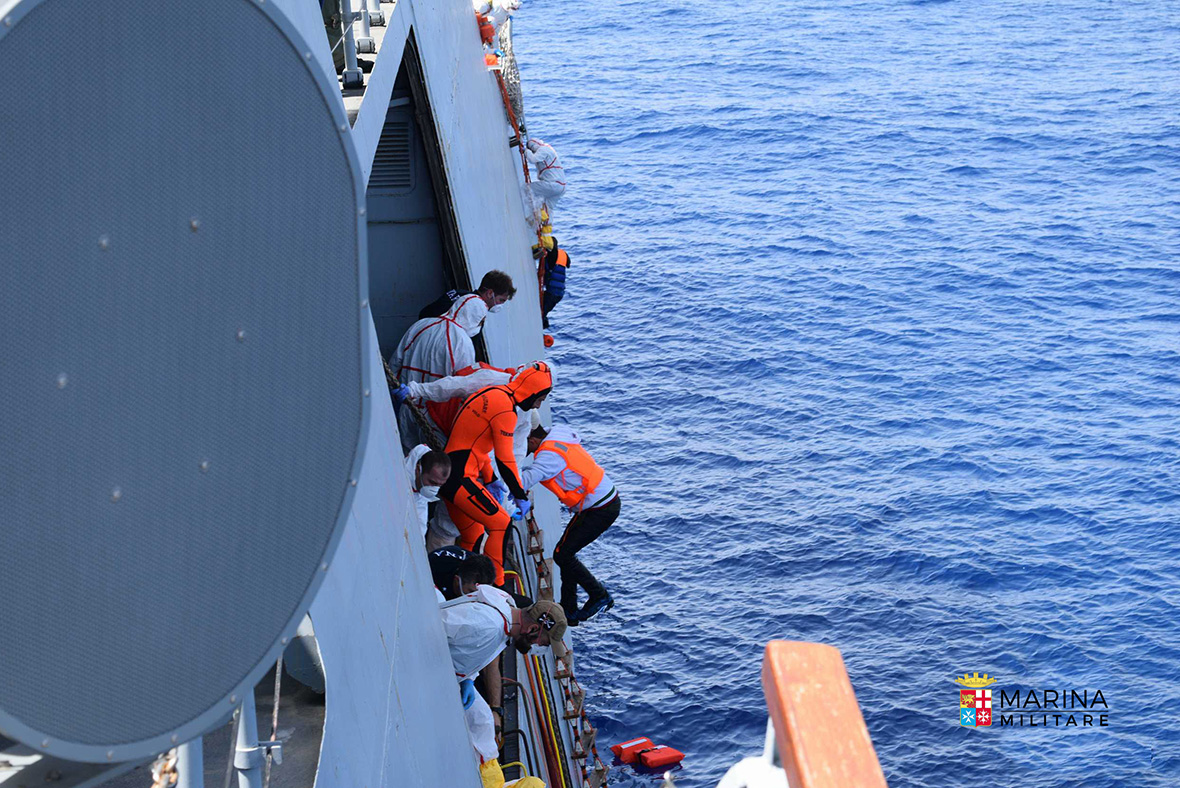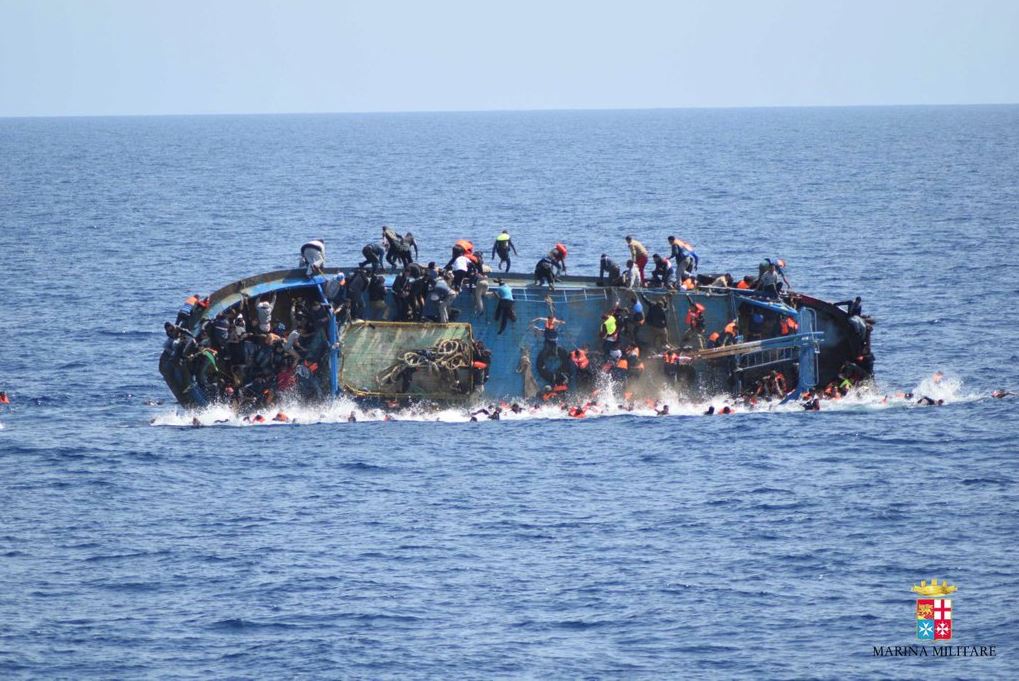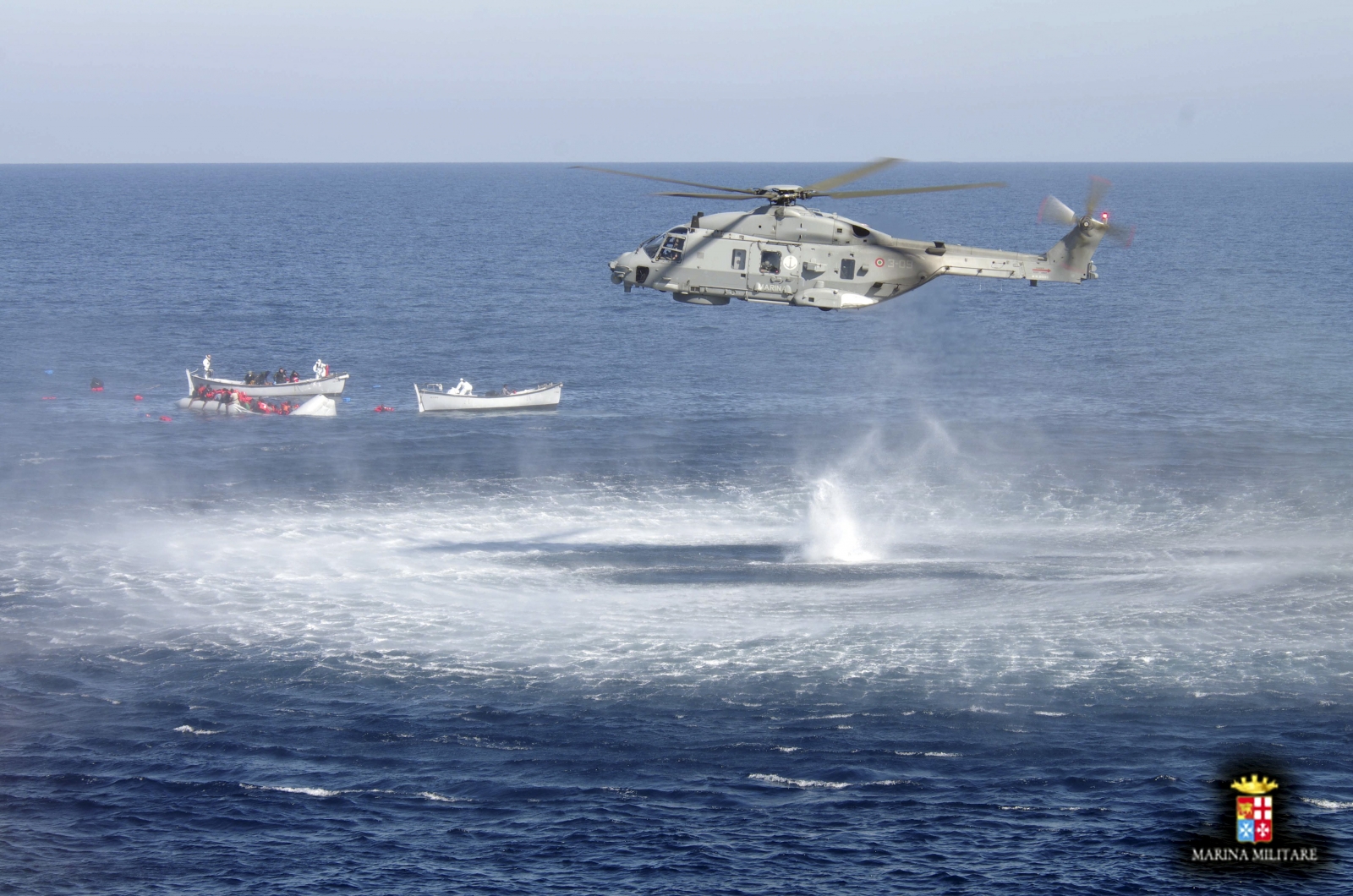Migrants may be trapped inside capsized boat as 562 rescued from Mediterranean
The Italian Navy has said it may never be known how many migrants drowned in the Mediterranean after one Libyan fishing boat crammed with more than 500 people capsized on its way to Italy on 25 May.
Dramatic footage and images published by the Italian Navy showed the frenzied scene off the Libyan coast as the migrants, most of them from Sub Saharan Africa, scrambled to get to safety as their wooden vessel overturned.
Five bodies were recovered from the sea, while the number of those rescued has increased from initial estimates of 500 to 562, including ten small children.
However, the Italian navy has said the true number of those lost in the waves may never been known. A spokeswoman for the naval force told IBTimes UK the rescue operation was over and the fishing vessel had sunk after it was spotted by the Bettica and Bergamini ships which conducted the rescue operation.
She explained that 562 migrants who had been rescued from the sea were expected to arrive at a Sicilian port in the next 24 hours, where they would be processed.
Rescue workers have hailed the action as an unprecedented operation. The Captain of the Bettica told the BBC's Today programme he had never found himself in a "situation of this magnitude". He explained he believed it was likely further migrants had drowned inside the hull of the ship.
"We have been rescuing five bodies; they are now on my ship but we cannot exclude that there were people inside the ship. It would have been very difficult to get out," he added.
Italy has picked up a total of 5,600 migrants this week alone, as the numbers of migrants making the journey from Libya to the continent increases because of more favourable summer weather.
The Italian government is pushing for a Europe-wide response to the migrant crisis in the Mediterranean, including the creation of an EU coastguard. While progress has been made on limiting flows of migration from Turkey to Greece following a deal between Brussels and Ankara, such a deal with Tripoli looks less likely as a new government of national accord in Libya struggles to impose its authority.












© Copyright IBTimes 2025. All rights reserved.






















